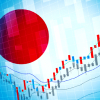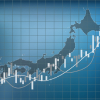Insights
Japan’s “new form of capitalism” in review
We review the “new form of capitalism”, a government plan to boost economic growth initiated by Japanese Prime Minister Fumio Kishida, who is enjoying a high public approval rating ahead of a closely watched upper house election.
Navigating Japan Equities: Monthly Insights from Tokyo (June 2022)
This month we explain why losses by Japanese equities so far in 2022 have been limited relative to their peers; we also assess the positive impact a return of inbound tourism could have on Japan’s economy and markets.
Japan’s “show me the money” corporate governance: 1Q record high
The just-released 1Q CY22 data on aggregate corporate profits in Japan was positive, with the overall corporate recurring pre-tax profit margin hitting a record high on a four quarter average. Both the non-financial service and manufacturing sectors contributed, with the latter surging to another record high. Note that the strong results occurred despite quite weak GDP, further proving the long-held theme of this report that profit margins remain on a structural uptrend despite sluggish domestic GDP growth, as shown in the charts below. Increased pricing power, coupled with improving corporate technological prowess and efficiency, should be credited for this, but improving global economic growth certainly was also a major factor.
For the last two centuries energy revolutions have created extensive platforms for subsequent technologies to drive wealth creation and raise living standards across the world. And this decade heralds the start of an energy revolution providing investors with lots of opportunities—the beginning of an energy broadband infrastructure boom.
Harnessing Change: An investment philosophy for Asia
Change is both more prevalent and significant in Asian markets. We believe that seeking to understand it is essential to deliver sustainable returns.
Balancing Act-Monthly insights: Multi-Asset Team-May 2022
The outlook is increasingly clouded as markets come to terms with a Fed that may do “whatever it takes” to contain inflation. Given that current inflationary pressures appear to be mainly driven by supply-side constraints and rising energy prices, it follows that the Fed would need to be willing to take the economy into a recession to meet its mandate.
Asian markets were downcast in April as investors were concerned about inflation and the likelihood of a larger-than-expected rate hike by the US Federal Reserve. For the month, the MSCI AC Asia ex Japan Index fell by 5.2% in US dollar (USD) terms.
Global Unconstrained Bond Strategy Q2 2022 Outlook
We present our Q2 2022 outlook for the Global Unconstrained Bond Strategy which incorporates our core markets, emerging markets and global credit views.
Navigating Japan Equities: Monthly Insights from Tokyo (May 2022)
We discuss the implications of the weak yen, now considered by some as a menace rather than a blessing, for the Japanese market and economy. We also explain the potential impact of higher energy and commodity prices.
Ground-level observations from China
A trip back to China provided an opportunity to experience first-hand the impact innovative technology and digitalisation is having on a fast-changing urban society.
Balancing Act-Monthly insights: Multi-Asset Team-April 2022
Relief rallies are always encouraging but do not necessarily portray parting clouds for a return to “normal” market conditions. The market is still digesting a rather dizzying array of challenging dynamics that have unfolded quickly over the last quarter.
Global Equity Quarterly (Q1 2022)
We are keen to participate in the push towards a less carbon intensive future but want to do so in a balanced fashion, with one eye on the associated risks.
On the Ground in Asia-Monthly Insights: Asian Fixed Income-March 2022
We have eased our cautious view towards duration as we expect global rates to consolidate from current levels. On currencies, we are positive on the Malaysian ringgit, Indonesian rupiah and Singapore dollar.
Harvesting Growth, Harnessing Change - Monthly Insights: Asian Equity-March 2022
Asian stocks declined in March, dragged down by the Russia-Ukraine conflict. Lingering concerns over inflation also weighed on the equities markets. For the month, the MSCI AC Asia ex Japan Index fell by 2.8% in US dollar terms.
Navigating Japan Equities: Monthly Insights from Tokyo (April 2022)
This month we discuss the Japanese stock market’s recovery from the initial shock of the Russia-Ukraine war; we also assess the potential impact of a Russian debt default on Japan’s markets and financial system.
Japan Value Insights: Spotlight on sustainable companies addressing social issues
We share our thoughts on sustainable companies that address social issues and contribute to the physical and mental well-being of individuals.
The GIC expects the global economy to continue struggling in a form of “stagflation-lite” and sees a relatively flat performance for global equities for the next three to six months (although quite positive on Pacific equities), with moderate weakness for global bonds.
Balancing Act-Monthly insights: Multi-Asset Team-March 2022
The Russian invasion of Ukraine has created significant uncertainty for investors. Prior to the war’s outbreak, central bankers were already facing a challenging inflationary environment, and these new commodity-driven price pressures are set to complicate matters even further.
On the Ground in Asia-Monthly Insights: Asian Fixed Income-February 2022
We are generally neutral to slightly cautious in our view of countries whose bonds are relatively more sensitive to UST movements. Within Asia currencies, we prefer the Chinese renminbi and Malaysian ringgit over the Indian rupee and the Philippine peso.
Navigating Japan Equities: Monthly Insights from Tokyo (March 2022)
This month we discuss how higher long-term yields could impact Japanese stocks; we also focus on how robust exports could play a role in boosting the country’s long stagnant wage growth.
Japan’s “show me the money” corporate governance: 4Q record high
The just released 4Q CY21 data on aggregate corporate profits in Japan was very positive, with the overall corporate recurring pre-tax profit margin hitting a record high on a four quarter average.
Russia-Ukraine conflict – Nikko AM’s views
In order to gain a range of perspectives on the Russia-Ukraine conflict, Nikko Asset Management has gathered the views of various experts and investment teams, representing many of our major asset classes and geographical regions.
On the Ground in Asia-Monthly Insights: Asian Fixed Income-January 2022
Policy actions by monetary authorities diverged across the region; we remain cautious on bonds of low yielding countries and regional currencies.
Navigating Japan Equities: Monthly Insights from Tokyo (February 2022)
We analyse the course the Bank of Japan could take as other major central banks move towards policy change; we also take a deeper look into Japan’s strong exports, which are expected to keep buoying the economy in 2022.
Have you ever stopped to imagine what would happen if the world’s central banks spent just over a decade pouring USD 25 trillion of liquidity into the economy with more than 60% of that liquidity created in the last two years? In this article, we’ll try to assess what has happened and think about how investors should navigate the next phase of the greatest financial experiment of all time.


























